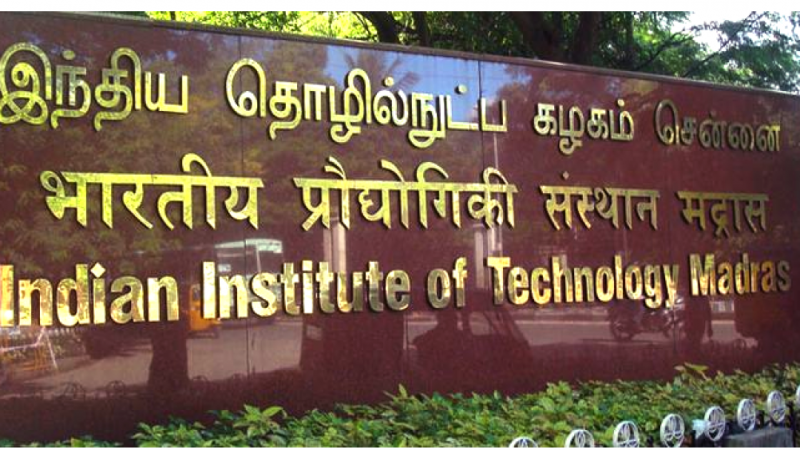Indian Institute of Technology Madras Researchers have successfully booted up MOUSHIK, an indigenously-made Microprocessor. MOUSHIK is a processor cum system on a chip that can cater to the rapidly-growing IoT devices, an integral part of Smart Cities of a Digital India.
MOUSHIK was conceptualized, designed, and developed at the Pratap Subrahmanyam Centre for Digital Intelligence and Secure Hardware Architecture (PS-CDISHA) of the RISE Group, Department of Computer Science and Engineering, IIT Madras. A video explaining the project can be viewed at https://www.youtube.com/watch?v=KpRJe915-9I
The impact of the completely-indigenous development process is the showcasing of an Indian ecosystem for designing, developing, and fabricating end-to-end systems within the country, leading to self-sufficiency. The Project is funded by the Ministry of Electronics and Information Technology, Government of India.
Elaborating about the processes behind MOUSHIK, Prof. Kamakoti Veezhinathan, Reconfigurable Intelligent Systems Engineering (RISE) Group, Department of Computer Science and Engineering, IIT Madras, said, There are three steps involved in the making of a microprocessor, namely Design, Fabrication, and Post-Silicon Boot-up. All three processes for MOUSHIK were undertaken in India, demonstrating an Atma Nirbhar ecosystem in Digital Design Productization.”
Further, Prof. Kamakoti said, The Design of the Microprocessor, Motherboard Printed Circuit Board Design, Assembly, and Post-Silicon Boot-up were done at IIT Madras. The foundry-specific backend design and fabrication was undertaken at the Semi-Conductor Laboratory of Indian Space Research Organization (ISRO) in Chandigarh and the manufacturing of this motherboard was done at Bengaluru. Shakthi MOUSHIK SOC will constitute the heart of an indigenously-developed motherboard called Ardonyx 1.0.”
MOUSHIK is an Indigenous RISC-V Microprocessor and is the third chip of the SHAKTI family, all of which were conceptualized and developed by this Centre and were first-time silicon successes.
The Field Applications of MOUSHIK include
1. Smart cards including Credit cards, ID Cards, Debit cards, Travel Cards for Metros and Driving Licenses
2. Electronic Voting Machines (EVMs)
3. Office Management Systems including Attendance, surveillance cameras and safe locks
4. Personalized Health Management Systems
5. Consumer Electronics including but not restricted to Washing Machines and Water pump monitoring systems
Prof. Kamakoti enumerated the benefits to India from such indigenously-developed Microprocessors:
1. The first indigenous chip in the SHAKTI series was designed and booted up SHAKTI in October 2018. This is a basic building block for mobile computing devices, embedded low power wireless systems, and networking systems besides reducing reliance on imported microprocessors in the Communications and Defence Sectors.
2. SHAKTI Microprocessor can be used by others as it is on par with International Standards. This series of microprocessors has the potential to pave way for a global market.
3. As it is open-source, any industry including startups can take the design and customize it based on their needs. The Swadeshi Microprocessor Challenge 2020 (https://innovate.mygov.in/swadeshi-microprocessor-challenge/) has been launched by the Ministry of Electronics and Information technology, Government of India, to encourage the same.
4. The other crucial aspect of such an indigenous design, development, and fabricating approach is reducing the risk of deploying systems that may be infected with back-doors and hardware Trojans. This development will assume huge significance when systems based on SHAKTI processors are adopted by strategic sectors such as defence, nuclear power installations, and Government Agencies and Departments.
The Technical Aspects of the MOUSHIK Processor Silicon are:
– The MOUSHIK Silicon is manufactured using 180 nanometer technology
– Die size of 5.315 X 5.155 sq.mm
– It has 103 functional IOs
– Package – 256 pin CQFP Package
– Core Voltage – 1.8v
– IO Voltage – 3.3v
– Gate Count – 647k
– Instance Count – 210k
– DFT – SCAN, JTAG
The SHAKTI microprocessor system design is based on RISC-V ISA (Instruction Set Architecture). RISC-V is an open, free ISA enabling a new era of processor innovation through open standard collaboration. ISA is the programming or machine language and provides commands to the processor instructing it on the functions to be executed.
![]()


